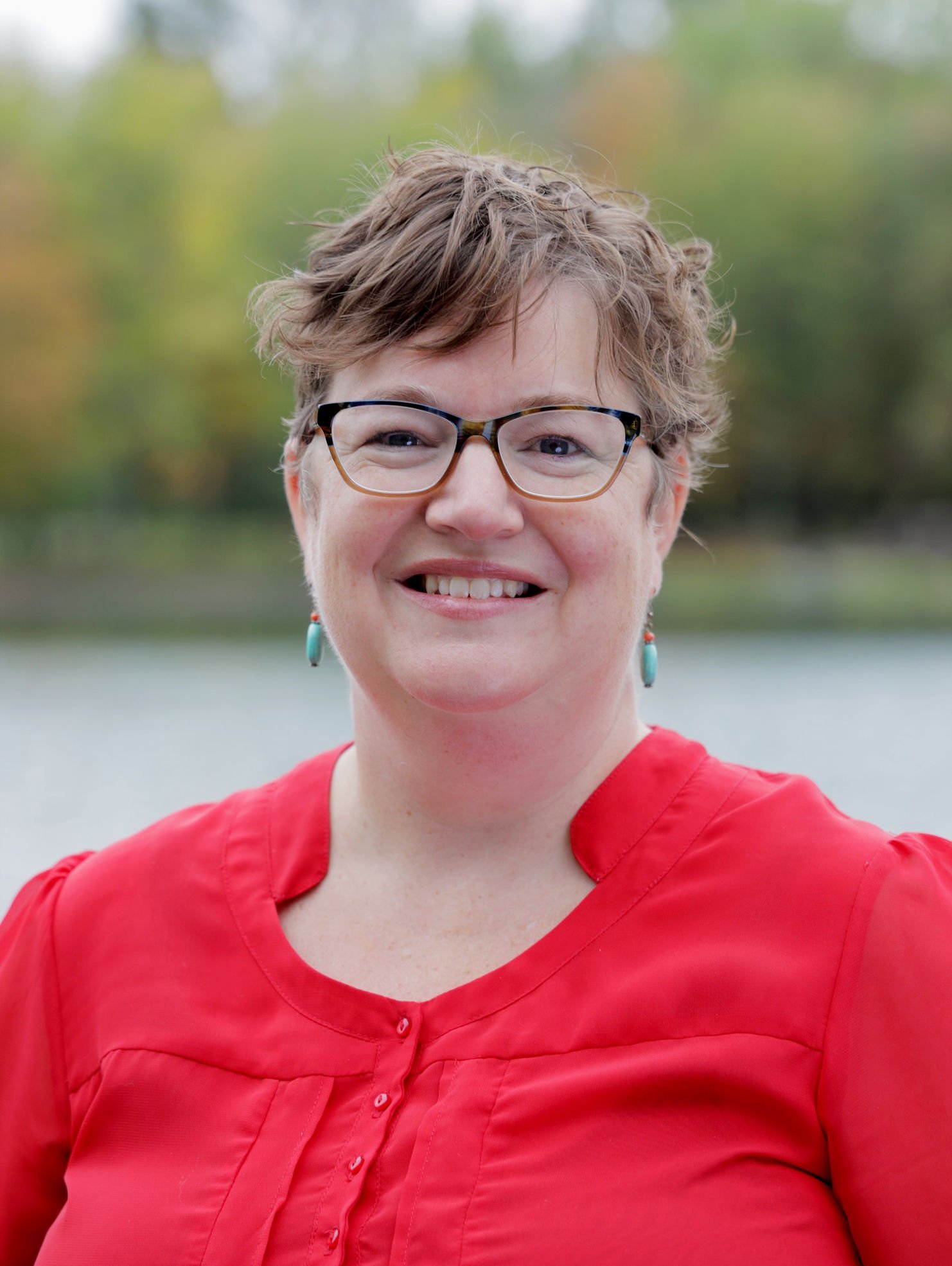My journey with feminism in the non-profit sector & an appeal for Gaza
by Marlo Turner Ritchie
My first non-profit experience was as a 19-year-old youth representative on the Board of Directors of my local women’s centre in Penticton, B.C. Given the feminist role models in my own family, I wanted to get together with others and organize to improve the quality of life and opportunities of women in my community. My friend, Jung-Mee Kim, was the other youth rep, and together, we helped pave the way for younger women to get involved with this organization. We helped to organize a Take Back the Night march downtown and an intergenerational festival for International Women’s Day.
Coming out at 19 years old led me to the 2SLGBTQI+ community in Vancouver, and through organizing on campus for bigger space and more resources for our student club at Simon Fraser University, I discovered to what extent discrimination could be institutionalized. Things like budgets, space, and communication opportunities were very political. I worked with other friends to organize together to influence the outcomes of the student body elections, knowing that there was a progressive slate versus a conservative slate running and that this outcome would greatly impact our capacity as a community to be funded and organized.
At McGill University, I took on feminism in a new way - by advocating for the voices of queer women within the 2SLGBTQI+ communities on campus and by taking as many queer and Feminist theory courses as possible. When I arrived, the student group was called “Gay McGill'' which was far from inclusive. After many meetings and several votes, we settled on Queer McGill, which is the name that remains today. We organized “Dyke Days'' - a celebration of queer women, and the first Town Hall on Homophobia at McGill. Trans women’s voices were centered in this work.
My first job in the sector was at Project 10, a beloved 2SLGBTQI+ youth organization. I was hired for the position of Co-Coordinator as a bilingual, queer woman, and given my previous experience. Part of my job was to hire the first four Trans folks at P10, and provide them with a budget to develop new programming, services and advocacy to gender-affirming care and community-building.
Later on as the ED at Head & Hands, a multi-service youth organization, my role as a white feminist was to co-create new opportunities to empower BIPOC leaders to support their roles and leadership in the community. We started “Street Vibes” a by/for youth showcase, and “Project X” a cop-watch style racial profiling awareness project.
I experienced one of the most challenging times as a feminist when I announced my pregnancy to another “feminist” employer. Not only did I feel unsupported and judged, but I was also fired when I went on maternity leave (they called it restructuring). It was an eye-opening experience because I thought, “Wow. If I am treated this way as a white, queer woman…imagine how more marginalized women are treated in the workforce”. This fueled my fire even more to fight Bill 21 (aka the Religious Symbols Bill) which was disproportionately affecting young Muslim women in the workforce.
Fast forward to our current consulting work. Bringing feminist values to the table is something our team does every day, and it HAS to be done with an intersectional approach. Feminist work IS the work of dismantling discrimination towards ALL marginalized communities. We are sometimes called on as consultants to come and support feminist organizations that are predominantly white. To support our clients who do feel they have work to do with diversifying their staff and programming, we have developed our own non-profit oriented equity, diversity and inclusion audit and action planning tools. We create focus groups and do surveys with specific communities, such as folks who are BIPOC, 2SLGBTQI+ and women with disabilities, centering the voices of the most marginalized to help steer future decisions and actions. In some cases, if we feel that the desire to dismantle white supremacy and facilitate change is not genuine, we give resources to the organization…and walk the other way.
Speaking of choosing battles, for International Women’s Day this year, I want to share that as a feminist, I am appalled at the level of a humanitarian crisis - the needless violence and suffering - that is disproportionately impacting women and children. I came across the organization, OCHA, which has been working on the ground in Gaza in partnership with Palestinian women for years. I encourage you to follow them and donate what you can. I want to highlight the incredible work done recently by the Centre de femmes de Verdun, in supporting one of their Palestinian members to advocate for the safety of her family in Gaza, through political channels here in Montreal. We are proud to work on a justice, diversity, equity, and inclusion (JEDI) project with this team.
Dismantling oppressive power structures is work that must be done every day. As an intersectional queer feminist, I am proud to bring these values and actions to my work and have intentionally built a team that shares these priorities.
Marlo Turner Ritchie (she/elle)
Founder & Principal Consultant



